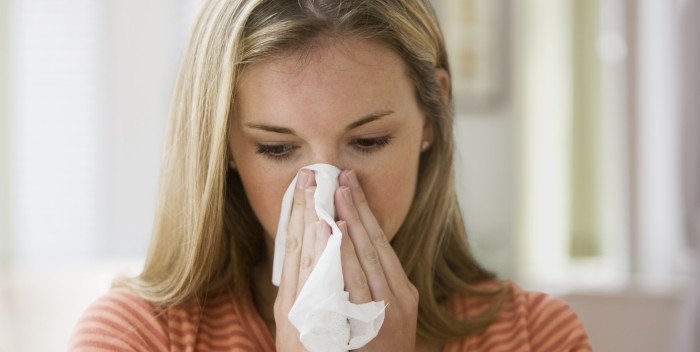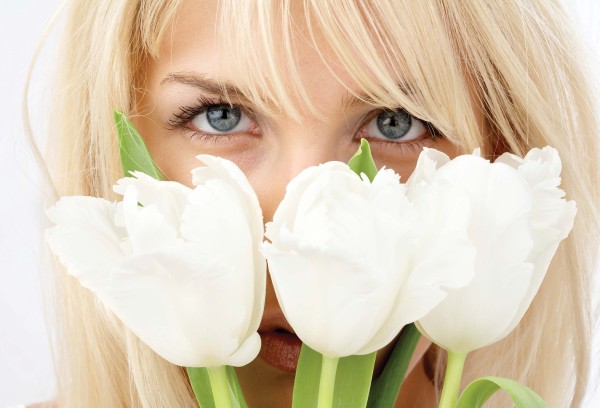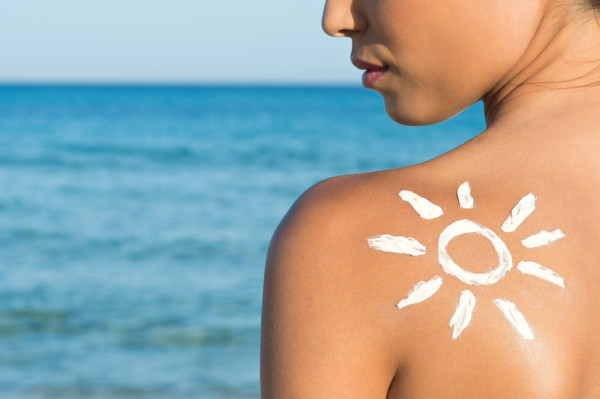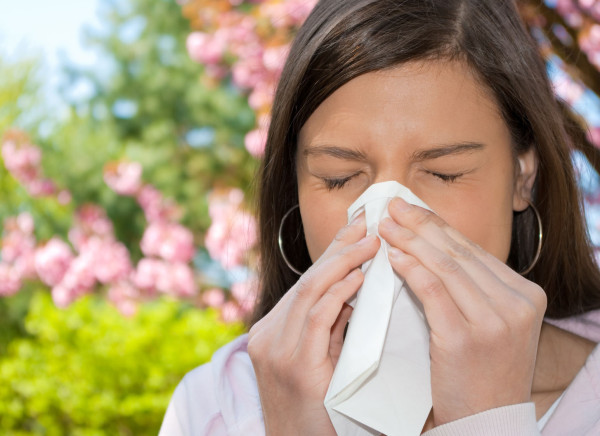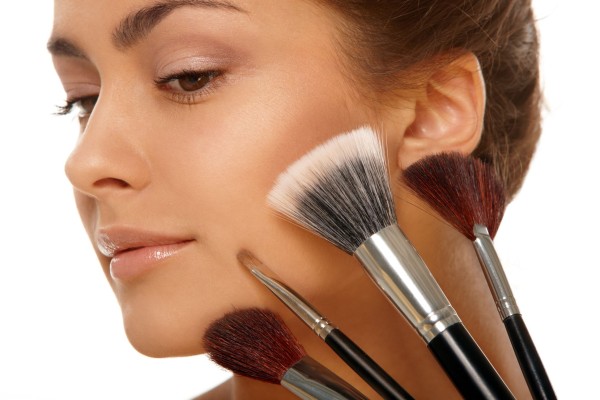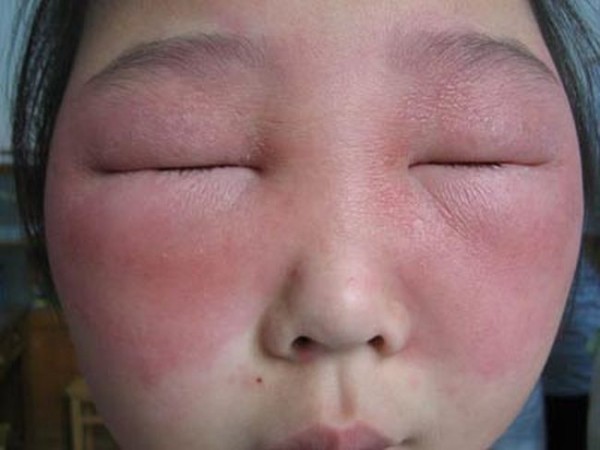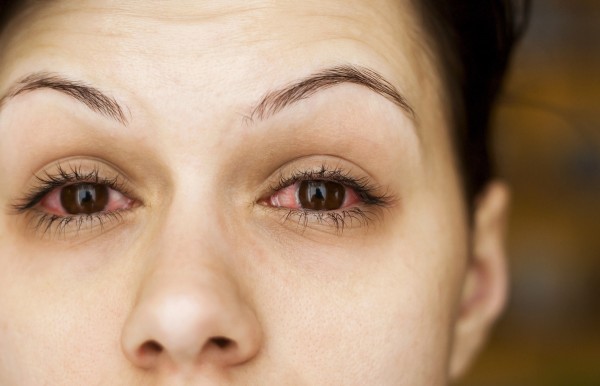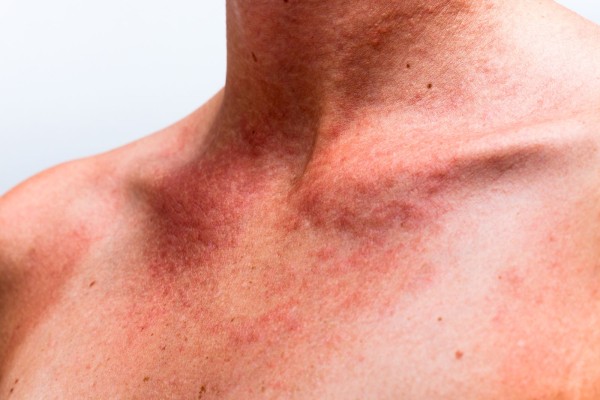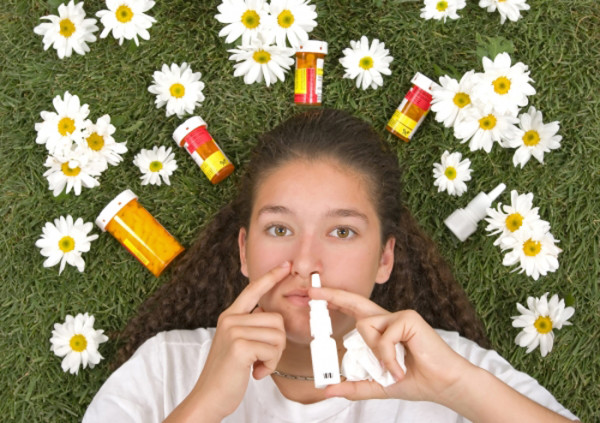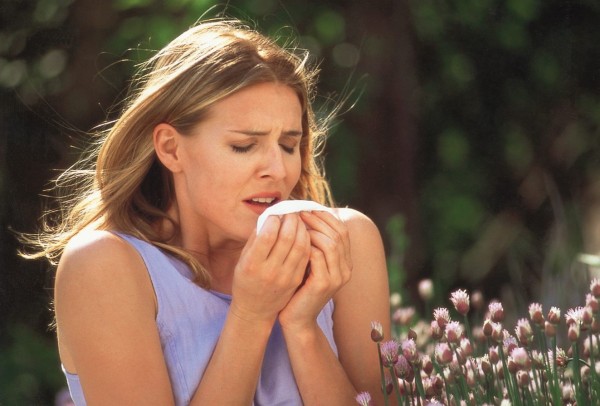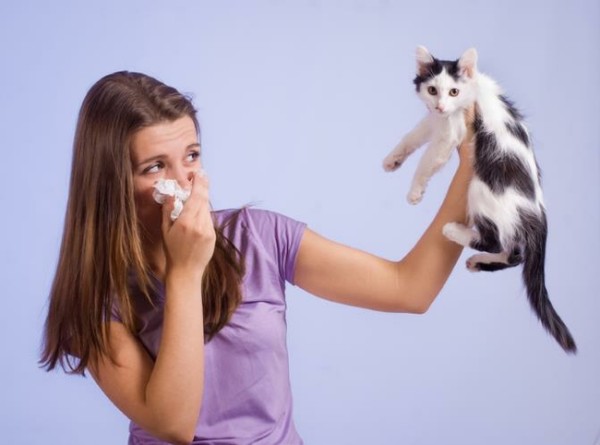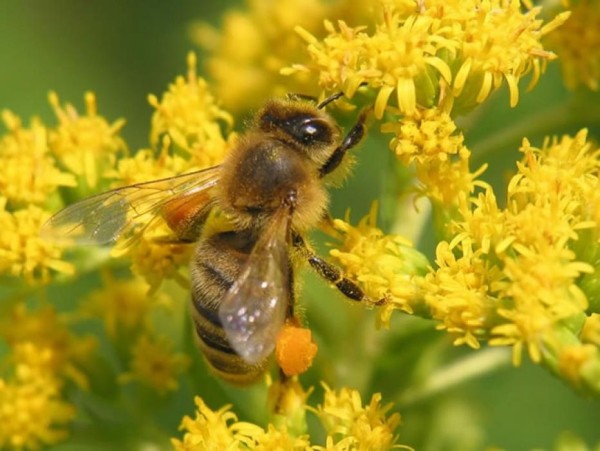Allergy
Allergy is a distorted reaction of the body to a particular product. Where does such a reaction come from, how to cope with it and whether it is possible to get rid of it once and for all - we will talk about all this and not only today.
Content
- Allergy types
- Allergy Causes
- Sun allergy
- Allergy to the skin
- Allergy on the face
- How does allergy manifest?
- How to recognize allergies
- Allergen analysis
- Allergy photo
- What to do with allergies
- How to get rid of allergies permanently
- Folk remedies for allergies
- How to treat allergies
- Allergy medicine
- Allergies in pregnant women
- How to prevent allergies
Allergy types
There are many types of allergies, here are the main ones:
- Pollinosis. It is caused by an incorrect reaction of the body to pollen. The latter enters the body through the mucous membranes, after which the physiologists of the reaction appear.
- Allergy to latex. As a rule, it manifests itself in the form of skin reactions that occur after contact with an allergenic material. But direct contact is not necessary, since its particles can be in the air, thereby creating many problems.
- Allergy to animals. The most common type of allergy. The sources are not only pets, but also farm animals. Provocateurs are considered: feathers, fluff, saliva, as well as urine and feces.
- Household dust allergy. As a provocateur of allergies, it is not the dust itself that is considered, but the substances that it contains. For example, cellulose, fungal spores, elements of furniture and cotton upholstery, particles of the epidermis, etc. are all real allergens.
- Allergy to insects. It manifests itself after contact with insects. It can be a bite, or the products of their vital activity enter the respiratory tract. The most dangerous provocateur of allergies are wasps and bees, or rather their pity.
- Allergy to mold. Allergy to mold (spores produced by mold fungi) is not fatal, but allergic reactions to these foods are common. It is very difficult to detect the presence of mold, and it is present in many places where a person may be.
Allergy Causes
Basically, the cause of allergies lies in the wrong lifestyle and diet. For example, even if initially a person did not notice such reactions, then in the process of life, consuming a lot of refined and rich in chemistry products, a weakened immune system can malfunction. Another option for the sudden onset of allergies is stress.
Anything can be the cause of symptoms: dust, fluff, pollen, insects, already familiar foods, etc. Contact with an allergen leads to characteristic symptoms.
Sun allergy
One of the most unpleasant types of allergies is sun allergies. The manifestation of the reaction occurs almost instantly. After a few seconds, a person realizes that it is urgent to hide from the warm rays. Although there are also protracted cases when symptoms appear only for 2-3 days. The types of reactions are divided into 3 types.
- Phototraumatic. Quite natural, inherent in absolutely every person who has been under the sun for too long. It manifests itself in the form of burns.
- Phototoxic. Similar to the previous option, it can appear for everyone. These are the consequences of sunburn: blisters, edema, erythema. As a rule, such a development is fraught if products, herbs containing photosensitizers were taken before going out into the sun.
- Photoallergic. It is characteristic of people whose body completely rejects sunlight, reacting to it as something alien. It is fraught with severe thickening of the skin, the appearance of a patterned rash, changes in pigmentation, etc.
At risk are people with diseases of the endocrine system, liver, kidneys, as well as those who have problems with the immune system.
Sun allergy has the following symptoms:
- abscesses, itching, rash, redness;
- roughness and unevenness of the skin on the face, arms and body;
- bleeding of the skin, which becomes more like scales;
- hives, vesicles and eczema.
The foci can appear not only where there was contact with the sun, but also in places that do not see the light.
In general, a healthy and strong body should not have such a reaction to the sun. But in infants, the elderly, as well as those who constantly suffer from chronic diseases, are at risk. Therefore, this category should reduce its time in the sun.
The cause of sun allergies can be very diverse. For example, a phototoxic appearance can be caused by substances that are found in:
- hygiene elements - antibacterial soap;
- perfumed preparations - lotions, perfumes, lipsticks, etc. (ambergris, citrus fruits, patchouli, St. John's wort, caraway seeds, nut oil, etc.);
- preparations for sun protection - yes, they can cause a powerful allergy;
- if there is a tattoo on the body;
- while taking certain medications.
Treatment for sun allergies follows the same principle as usual. Identify what caused the reaction and then eliminate it. For help, of course, it is better to consult a specialist.
Allergy to the skin
There are several types of allergic reactions to the skin:
- Atopic dermatitis. The rash usually has well-defined boundaries. It manifests itself more in people who are genetically prone to it. Most often, all of this variety can be found on the skin of babies over two months old. First, one part of the body begins to be affected, and then moves on to another. Atopic dermatitis occurs on the tummy, arms, and legs, and is less common on the crown and neck.
- Contact dermatitis. Appears in case of regular contact with the pathogen. Typically caused by chemicals, cosmetics and industrial reagents. Aggressive pathogens are: hair dyes and shampoos, powders, poisonous plants.
- Hives. Expressed in small red spots. Blisters may be present. Urticaria is characterized by severe itching. Allergy is so called because it looks very similar to nettle burns. The cause of the appearance can be insect bites, food, medicines, cosmetics, etc.
- Eczema. Acute variant of the manifestation of allergies on the skin. It usually appears on the hands or face. Characterized by swelling, blisters through which fluid seeps, scaly skin. The itching and burning sensation is so strong that at night a person cannot sleep, and during the day it is impossible to walk calmly. May cause neurotic disorders, loss of appetite.
The general list includes other types: Quincke's edema, toxederma, neurodermatitis, etc.
As a rule, skin allergies in most cases are caused precisely by contact with the pathogen, and less often through food.
A predisposition to eczema is more common in people with a corresponding heredity. This type of allergy can be caused by stress, topical preparations, and some metals (nickel products).
Toxidermia is notable in that drugs that are designed to eliminate the problem can aggravate it. Therefore, you should be very careful when treating. It is caused by allergenic foods. Often, this particular type is manifested as a side effect of certain medications. If toxidermia occurs, contact with the allergen should be immediately limited.
Skin allergies are treated by applying special ointments and gels, which are prescribed by a doctor. Antihistamines are not excluded. You can also make lotions made from herbal decoctions. Just before that, you need to be sure that there is no allergy to them, so as not to aggravate the situation. In general, it is advisable to immediately go to a specialist.
Allergy on the face
Women are especially afraid of allergic reactions on the face. Indeed, this is a powerful blow to self-esteem, especially when it manifested itself at the most inopportune moment. And, oddly enough, it is girls who tend to her more than men. This is due to the fact that the former regularly apply cosmetics with a high content of chemicals that can act as the strongest provocateurs.
In addition, the causes of facial allergies can be:
- mold;
- pets;
- insect bites and stings;
- allergenic plants and their pollen;
- face cream;
- cosmetic preparations;
- food, etc.
Allergies on the face may not appear immediately, but after a few days. This complicates the search for the pathogen. Therefore, in order not to make things worse, even the slightest hint of allergies should be the reason for increased attention to the skin. Think back to what exactly has changed in your current diet or personal care. All "novelties" should fall under suspicion.
The manifestation of an allergy on the face is characterized by the occurrence of:
- small rash;
- swelling;
- redness;
- stains;
- acne;
- acne;
- blisters;
- peeling.
Each of the above items is accompanied by severe itching, and possibly burning. But in no case should you succumb to temptation. It is necessary to seek help from a specialist as soon as possible. The latter will make an accurate diagnosis and determine what kind of allergy is taking place. And only then will he prescribe the necessary drugs and a treatment plan.
If the face is allergic: a plan of action
First, make sure it is really an allergy, and not a rash due to hormonal disruption in the cycle.
Then try to figure out for yourself what the allergen might be. What new things did you put on your skin, or maybe you ate something wrong?
If the source of the allergy has been identified, eliminate it. If not, then just remove everything that could possibly cause it at all: medications, exotic fruits, alcohol, decorative cosmetics (it will not be superfluous to check its expiration date), pets, plants, etc.
See a dermatologist.
Start taking any medication your doctor prescribes. No self-medication! An exception is folk remedies, such as lotions.
For the duration of the treatment, forget about all cosmetics that have direct contact with the skin (foams, foundation, face gels, etc.). Wash your face with lukewarm water, without using soap.
Do not scratch the foci of inflammation, as much as you would like it. Endure, endure and endure again.
Don't leave your face wet. Even if you get caught in the rain, be sure to wipe your skin with a dry cloth.
If you do not want scars and scars on your face, then do not delay the treatment and obediently obey your doctor in everything.
How does allergy manifest?
Allergies can manifest themselves in different ways. Upon contact with a provocateur, the following symptoms may appear:
- itching / burning;
- frequent sneezing;
- shortness of breath;
- redness of the skin;
- runny nose;
- tearing eyes, etc.
This reaction is due to the fact that the body perceives the contact substance as a potential pest and is trying with all its might to defend itself.
How to recognize allergies
Recognizing an allergy is pretty straightforward. A sharp change in state for the worse, i.e. the appearance of the symptoms described above is a reason to think about the presence of allergies. It is unlikely that you will confuse the symptoms of such a reaction with anything. It is much more difficult to determine what exactly triggered the changes in the body. Since a person rarely has contact with one thing, there are several elements on which suspicions are superimposed.
In order to prevent unpleasant symptoms, it is advisable to pass the appropriate tests that will help identify allergenic foods.
Allergen analysis
Now, in almost every clinic, you can easily pass tests to identify allergens. The only negative is that you cannot take one sample to specifically identify the causative agent of the reaction. As a rule, the analysis is submitted for a specific product, for example, separately for pineapple and separately for bananas. The most that immunologists can offer is package services. Those. check at a time for allergies to several foods that fit the same group. However, the cost of testing is far from cheap and not everyone can afford it.
Lovers of travel to different countries fell in love with such analyzes. It is dangerous to try new products that you have never known before. In order not to be afraid of a sudden reaction, taking a sample is a great option.
Allergy photo
Allergy has several manifestations. On the Internet, you can find many pictures of people suffering from one type or another. Below are the three main situations when the body does not respond properly.
What to do with allergies
If you suddenly begin to experience symptoms similar to a cold (watery eyes, runny nose, cough, etc.), there is a high probability that there is an allergy. In addition, skin rashes and swelling may appear. If such a reaction is noted regularly, this is a clear reason to consult a specialist.
One of the most dangerous types of allergies is anaphylactic shock. It captures the entire body, the reaction proceeds very quickly, so you need to immediately call an ambulance.
To begin with, you should take measures to prevent such situations. If you find out that you have an allergy, warn your relatives and friends about the situation that has arisen so as not to put yourself at risk again. All doctors and even cosmetologists should also be notified of this. Before taking any drug - read the instructions carefully.
For mild allergies, use specialty sprays and drops to help relieve symptoms. If an allergic reaction appears at the time of taking the drug, stop taking it immediately and consult a doctor.
Take the antihistamine your doctor prescribed. If rashes or itching appear on the skin, use special creams and gels.
How to get rid of allergies permanently
Experts to this day cannot give a clear answer why allergies appear. But one thing is established for sure, the main reason is problems with the intestinal microflora. Improper nutrition leads to the death of beneficial microorganisms, which directly affects the immune system, weakening it.
Therefore, in order to make attempts to get rid of allergies forever - first and foremost, you should pay attention to your gastrointestinal tract. Arrange a general cleansing of the body by cleaning out the trash that has been accumulating over the years.
To do this, you can go on a cereal diet, take special drugs that help not only cleanse, but also normalize the microflora.
Start hardening to boost your immune system. Love sports and give up bad habits. After all, first of all, allergy is a violation of the immune system. So, you need to focus on it.
But, in this way, you can get rid of allergies to natural products of nature. But with chemicals, the situation is different. It is possible to get rid of the reaction to them only if contact with them is completely excluded. In principle, allergies to chemical products are quite natural. Our body simply does not recognize "foreign agents" and resists them with all its might.
The fewer such things in a person's life, the better. And at the same time it does not matter at all whether they are allergic or not.
Folk remedies for allergies
The use of traditional medicine in the treatment of allergies is becoming more and more popular every year. The most common allergens are dust, pet hair, pollen, food. To get rid of this type of allergy, vitamin C is often used, which is known to have a number of anti-inflammatory properties. For therapeutic and prophylactic purposes, it is necessary to take daily, 4-5 times, 1000 mg of the vitamin. Now it is very easy to do this, since the required dose is contained in effervescent vitamin tablets.
What traditional medicine can do without herbs? The latter also take place in the treatment of allergies. But unlike the previous version, you need to be more careful here. Before starting the course of treatment, you should check if there are any allergies to these herbs.
To get rid of allergic rhinitis, you can use viburnum bark. Pour a couple of tablespoons with a glass of boiling water and put on low heat. After half an hour, remove from heat and let the broth cool. Strain, dilute with water to taste and drink 0.5 cups twice daily after meals.
Nettle gives good results. Prepare decoctions from it and drink 2-3 times a day for two weeks.
How to treat allergies
There is no specific treatment as such that helps get rid of allergies. Specialists can only weaken the body's reaction by suppressing the manifestation by prescribing antihistamines, injections, absorbents, etc.
But with new contact with the allergen, everything comes back again. Therefore, there is a need to carry drugs prescribed by a doctor, always with you.
Allergy medicine
Medicines, even antihistamines, should be prescribed only by a doctor, after a detailed examination of the patient. There are many manufacturers specializing in the production of such drugs. It is difficult and almost impossible to choose a suitable one on your own, which will show maximum efficiency. Moreover, self-prescription medication can turn into not the most pleasant consequences. In order not to put yourself at risk - if you experience symptoms, contact your doctor immediately.
Allergies in pregnant women
Despite the fact that pregnancy is a completely natural process, for most women this period, although pleasant, causes a lot of discomfort. When allergies are added to all this, then you certainly cannot envy.
Nature has taken good care of expectant mothers, having foreseen a function in the body that produces the hormone cortisol in an "interesting position". He is responsible for anti-allergenic activity. Those. the risk of an allergic reaction at the time of pregnancy is reduced, and if it happens, it is not so strong. After the baby is born, cortisol gradually "disappears" and everything returns to normal.
However, if a woman had an allergy before pregnancy and took medications, then when an "interesting situation" occurs, first of all it is worth consulting a doctor. It is possible that he will change the recipe to a more suitable one for the new "status".
How to prevent allergies
- Since allergies are mostly a genetic disorder, it is necessary to study your family tree and find out if any of your relatives had a similar disease. As the saying goes, "he who is forewarned is armed." If one of the parents is allergic, then the risk of duplication of the problem is about 30-40%, if both, then about 80%. It is also worth knowing that the disease usually manifests itself after a generation. Those. it is not children who are more likely to get sick, but grandchildren.
- Do not delay with the treatment of diseases associated with the work of the gastrointestinal tract. Temper regularly - a weakened immune system and advanced gastrointestinal diseases - can give rise to the appearance of allergies in a person who has not previously had a problem with this.
- Polypharmacy (frequent use of medicines in large quantities) also causes allergies. Take your time to drink pills and syrups when the temperature has just risen, let the immune system fight without assistance. Also, you cannot use several drugs at once. So, taking three or four medicines at the same time increases the risk of allergies by 25%, and if there are five or more, then the chances increase up to 50%.
- Try to live as healthy as possible. Food should be "live", not contain chemicals (at least not in huge quantities). Minimize the use of the microwave. Go in for sports.
- If there is a small child in the house, then make the decision about the pet plant carefully. Having previously checked the reaction of the baby's body.
- Keep your home clean. Regularly damp the rooms.
It is very important to make every effort to prevent the occurrence of allergies, as the latter is very difficult to treat. Experts' calculations show disappointing results. If the course of life continues in the same direction, then by 2030 every second inhabitant of the earth will suffer from allergies. This is a reason to think about it and start prevention right now.
